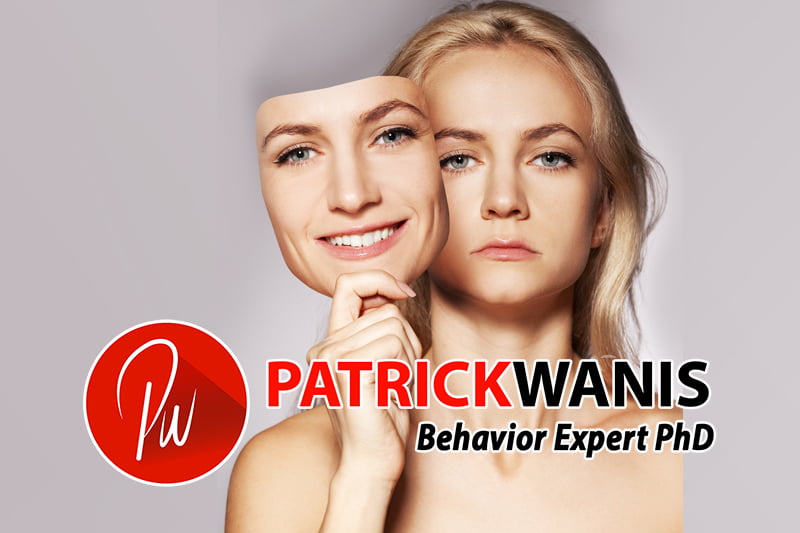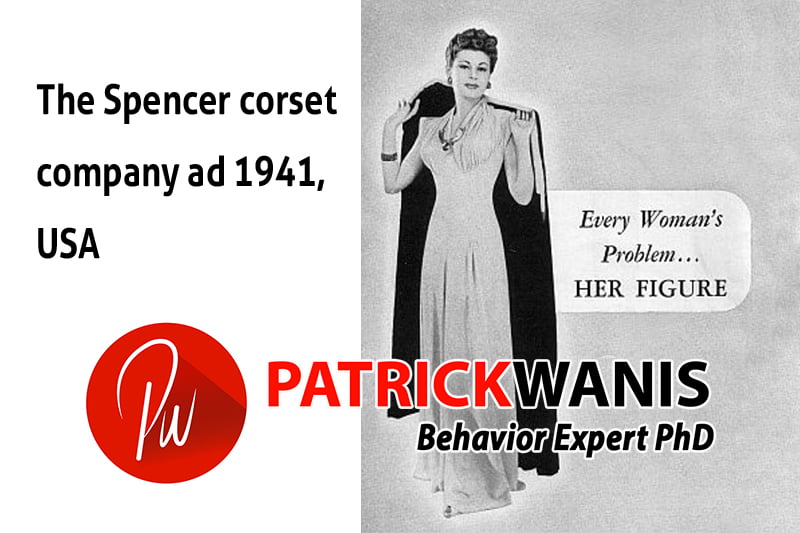
In this week’s Success Newsletter, I would like to reveal the reasons self-esteem is actually harmful, and offer the solution.
First a quick update:
The Breakup Test
Are you heartbroken, angry, lost, lonely, confused, depressed, hung up, or pining over your ex? Do you know how your ex is truly affecting you and do you want to benefit from personalized advice, action steps and revelations? Take my free breakup test and get your own personalized report.
Are You Being Treated Poorly? Who Is Controlling You?
Do people treat you badly? You teach others how to treat you! You have conscious control; you can set your boundaries, so why do you let others treat you poorly? Are you a people-pleaser? Watch my video
Now, let’s talk about the reasons self-esteem is actually harmful, and offer the solution.
For 3 decades, self-esteem has been sold as the answer to all social ills, helping you to succeed in life simply by believing you are amazing. But the self-esteem movement has failed and, as I will explain, the dangers of self-esteem are now apparent.
The US suicide rate is at a 50-year peak; in 2018, the Centers for Disease Control and Prevention revealed that suicide is 33% higher than it was less than 20 years ago in 1999. At the same time the rates of self-harm and body dysmorphia continue to rise.
We have become narcissists, obsessed with self, extremely self-conscious but never self-aware!
The self-esteem movement began in 1986, not by a psychologist, but by a California State politician John Vasconcellos, who formed the self-esteem commission with the intention “to avert problems associated with crime and poverty by boosting the state`s collective self-esteem.” Source: https://www.chicagotribune.com/news/ct-xpm-1987-02-23-8701150372-story.html
The self-esteem movement coincided with the movement towards individualism. Self-esteem was promoted in the UK and US as the “social vaccine” to drug and alcohol abuse, child abuse, domestic violence, welfare dependency, crime and even poor educational performance. It made no impact or difference. And no one knew that the premise that self-esteem is the savior is actually based on a lie – distortion of the original scientific research data.
“Self-esteem…provides us a vision for developing our human capital to make America competitive again.”
– John Vasconcellos, Nov. 28, 1990, letter to legislators
Why is self-esteem harmful?
First, the movement in the 1980s led to “parental overpraise” which created narcissism in children. This, in turn, leads to emotional emptiness, depression and anxiety.
Second, self-esteem is directly linked to social perfectionism, to a constantly moving unreachable target and expectations.
Self-esteem is determined and measured only by comparison, by constantly comparing yourself to people around you (appearance, achievements, possessions, lifestyle, etc.), by being flashy and by constantly posting photos and images of the way you would like people to see you and believe that’s who you are and the life you live.
Social perfectionism is a social construct which has been promulgated and exacerbated by media and by social media. The message continues to be that there is something wrong with you, you’re missing something, you’re incomplete, unworthy, a failure or ugly and undesirable unless you buy this product and/or look or be a particular way: extroverted, thin, funny, ambitious, achiever, young, beautiful, someone who is going to change the world, and so forth.
The result is people have become obsessed with themselves, with pictures of themselves, with comments of themselves, with updates of themselves and of course, with constant obsessive comparison to everyone else. The motive being to be liked, to be approved, to be accepted, to feel that you actually belong, to try to make your mark and to stand out in the crowd as amazing, all in the desperate hope that you might be able to actually like and accept yourself, or actually feel that you’re worthy. And yet, all the while this obsessive concept of self-esteem & individualism has only created more divisiveness rather than collectiveness and oneness.
And in order to be liked accepted and approved you need to do what everyone else is doing, to agree with and conform to the collective opinion of the moment or face harsh ostracism and online attacks.
Accordingly, authenticity has been lost, and, we have shifted the focus and goal away from character to vanity and personality!
Who is the real you, the authentic you? Is it the image you portray on Facebook and Instagram or is it the person that shows up at work or is it the person that you show to mother or siblings or best friend? The real you no longer exists because it’s constantly molded on social media with beautifully contrived and edited images and commentary.
Of course, the sales pitch that you are not yet good enough is not something new. It started in the 20th century when corporations realized that the best way to sell a product is to convince people that there’s something wrong with them, such as the example of a 1941 ad by Spencer corsets with a woman and the caption “Every Woman’s Problem…HER FIGURE.”

Also, read: Brainwashing & Advertising – ‘there’s something wrong with you and How stupid are men
Today the propaganda is stronger than ever before due to digitalization and technology which is the medium to place greater pressure on you to be better and better, to continually strive to be perfect, yet always falling short.
In 1995, before television, girls in Fiji were free of the eating disorders common in the West. “But by 1998, after just a few years of sexy soap operas and seductive commercials, 11.3 percent of adolescent girls reported they at least once had purged to lose weight…and they also began to ‘think of themselves as poor and fat.’” – Source Harvard study https://news.harvard.edu/gazette/story/2009/03/fijian-girls-succumb-to-western-dysmorphia/
So why does this matter to me and what is the solution?
It matters to me because of its impact on the individual and on relationships; it matters to me because I see the way that social perfectionism (self-esteem and individualism) is harming so many people – both men and women. I believe it’s worse for women because the pressure is greater and the standards are higher and the expectations never cease to keep changing and rising.
There is less connection and more divisiveness than ever before – narcissism and self-obsessiveness divide people and result in isolation, depression, anger and self-loathing. Further, women simply don’t understand that the way that they judge and hate themselves and constantly think that they are not good enough affects men as well. It damages the relationships that women have with men.
The solution
The solution is simple although not easy: self-compassion and self-acceptance.
Self-compassion and self-acceptance are about being able to look at yourself and realize that you are actually human and therefore imperfect. Yes, you have limitations, strengths and weaknesses. And you do not need the constant approval of everyone around you including thousands of unknown Facebook ‘friends.’ Instead you need to have compassion for yourself when you do make mistakes, when you do realize that you’re not perfect and that you are flawed. The paradox is that authentic self-esteem (liking yourself) can only occur when you accept all of your warts, all of your failings, mistakes, limitations, weaknesses & imperfections – to accept the often unlikeable self, and to focus on character building versus image selling, to focus on building upon your talents & strengths and helping other people! Then, you can actually find what you’re looking for – inner peace.
If you need personal help to remove the blocks to your success, overcome the past or attain self-acceptance, book a one-on-one session with me.
You can add to the conversation below.
If this newsletter was forwarded to you and would like to receive all of my newsletters please enter your email address on the home page at PatrickWanis.com.
I wish you the best and remind you “Believe in yourself -You deserve the best!”
Patrick Wanis Ph.D.
Celebrity Life Coach, Human Behavior & Relationship Expert & SRTT Therapist
Anointed “The Woman Expert” by WGN Chicago, Patrick Wanis PhD is a renowned Celebrity Life Coach, Human Behavior & Relationship Expert who developed SRTT therapy (Subconscious Rapid Transformation Technique) and is teaching it to other practitioners. Wanis’ clientele ranges from celebrities and CEOs to housewives and teenagers. CNN, BBC, FOX News, MSNBC & major news outlets worldwide consult Wanis for his expert insights and analysis on sexuality, human behavior and women’s issues. Wanis is the first person ever to do hypnotherapy on national TV – on the Montel Williams show.
